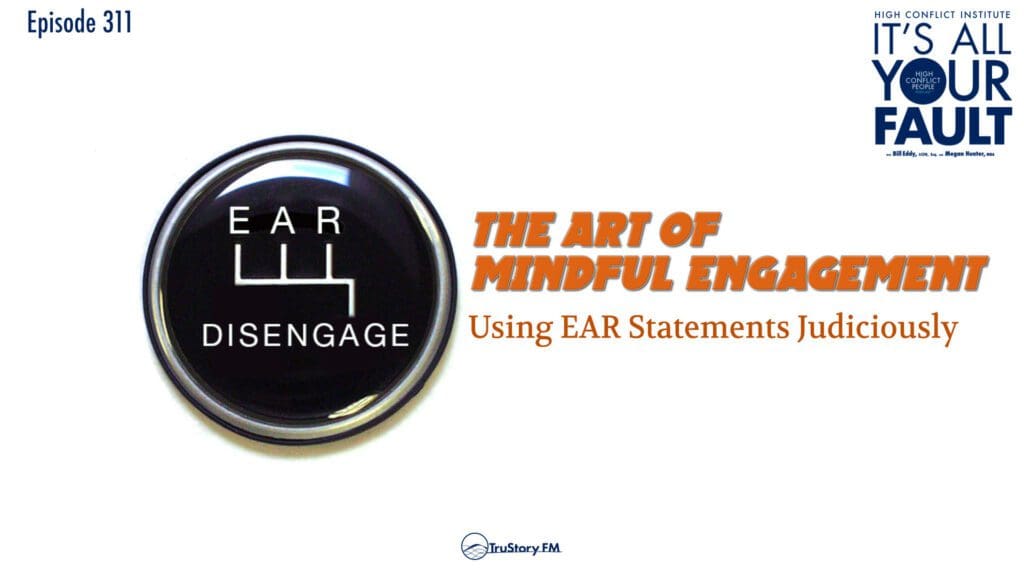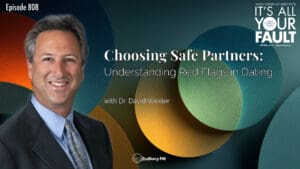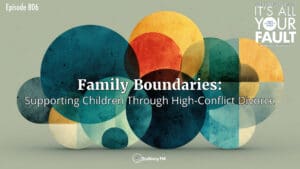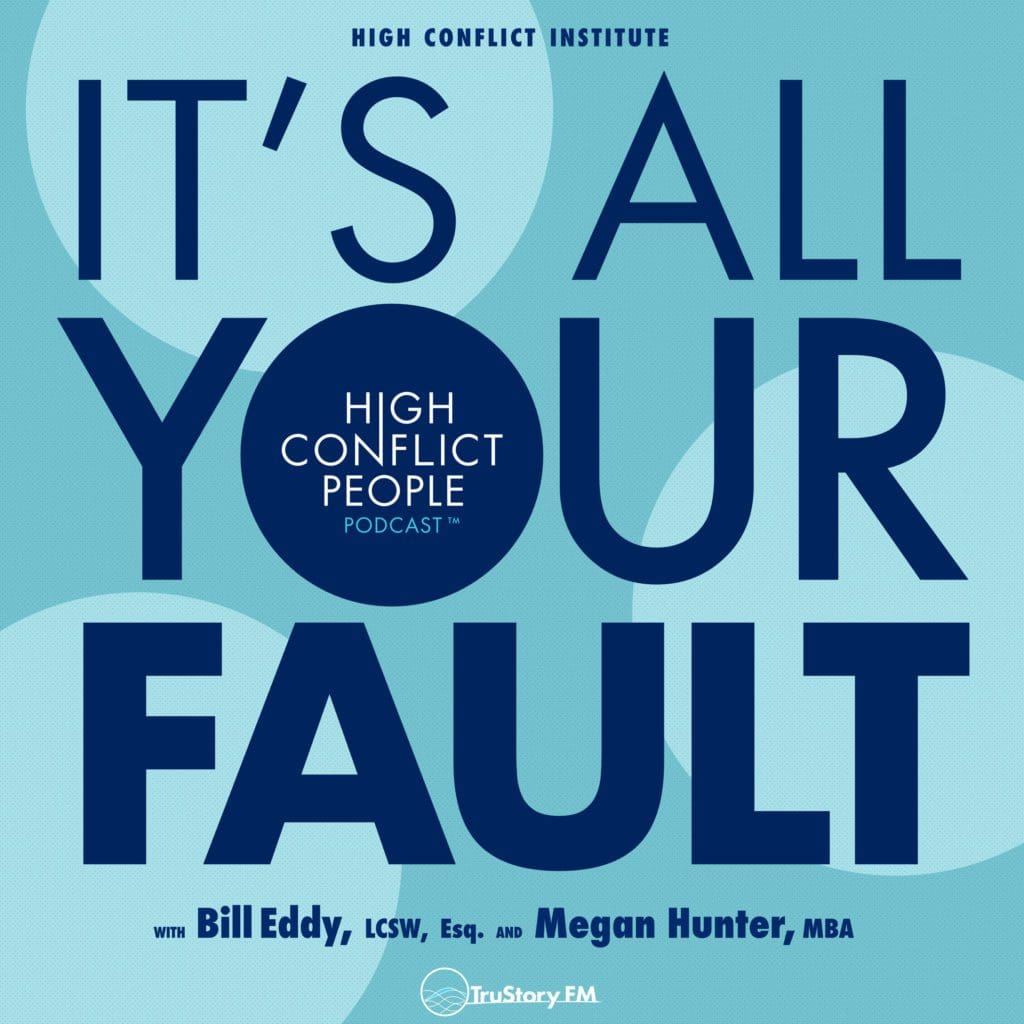De-escalating High Conflict People with EAR Statements: An insightful look at calming down difficult situations
In this episode, Bill and Megan dive into how to use EAR statements (showing empathy, attention, and respect) to de-escalate high conflict people and situations. They discuss the different high conflict personality types and when EAR statements can be effective tools. Bill and Megan also talk about combining EAR statements with limit setting, and when it’s best to just disengage entirely.
EAR statements are a compassionate way to acknowledge someone’s emotions while still maintaining professional boundaries. Bill explains how a short EAR statement can radically shift a tense interaction by making the other person feel heard and seen.
However, EAR statements aren’t advisable in dangerous or abusive situations. Safety should always come first. Bill and Megan also caution that overusing empathy with manipulative personality types can backfire.
Questions we answer in this episode:
- Do EAR statements work for all high conflict personalities?
- How do you use EAR statements with the paranoid, narcissistic, and antisocial types?
- When is it best to just disengage and set a limit?
Key Takeaways:
- EAR statements show empathy, attention, and respect – this calms people down.
- They work for most high conflict personalities, especially borderline and histrionic.
- Disengage from aggressive people for your own safety. You have the right.
- Don’t over-empathize with manipulative personalities – set limits.
- Compassion for people’s histories can help you use EAR statements sincerely.
This insightful episode is essential listening for anyone who deals with difficult people regularly. Bill and Megan’s wisdom and experience provide easy-to-implement communication tools that can transform volatile situations. Their compassionate approach promotes understanding on both sides of tense interactions.
Links & Other Notes
- BOOKS
- COURSES
- CONSULTATION & COACHING
- Live Lab (1:1 coaching to learn verbal and written communication skills in high conflict situations)
- Consultations (1:1 educational consultation to discuss high conflict situations and cases with our high conflict experts)
- ARTICLES
- Our website: https://www.highconflictinstitute.com/
- Submit a Question for Bill and Megan
- All of our books can be found in our online store or anywhere books are sold, including as e-books.
- You can also find these show notes at our site as well.
Note: We are not diagnosing anyone in our discussions, merely discussing patterns of behavior.











